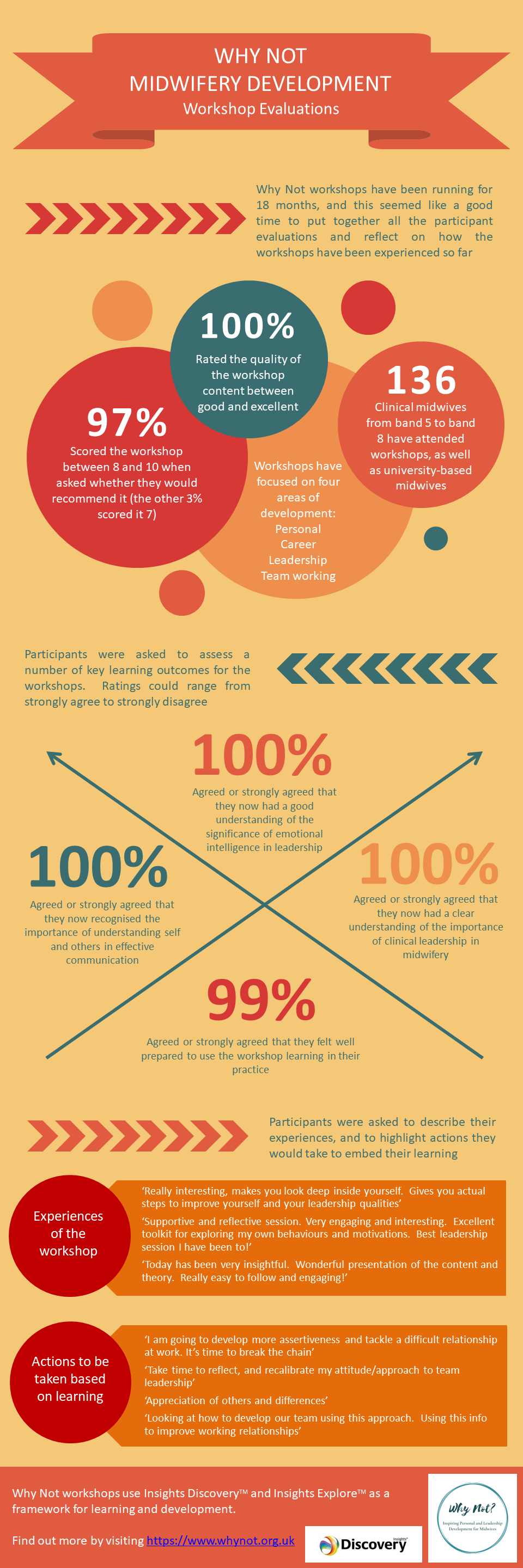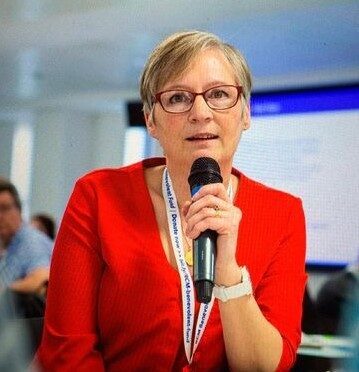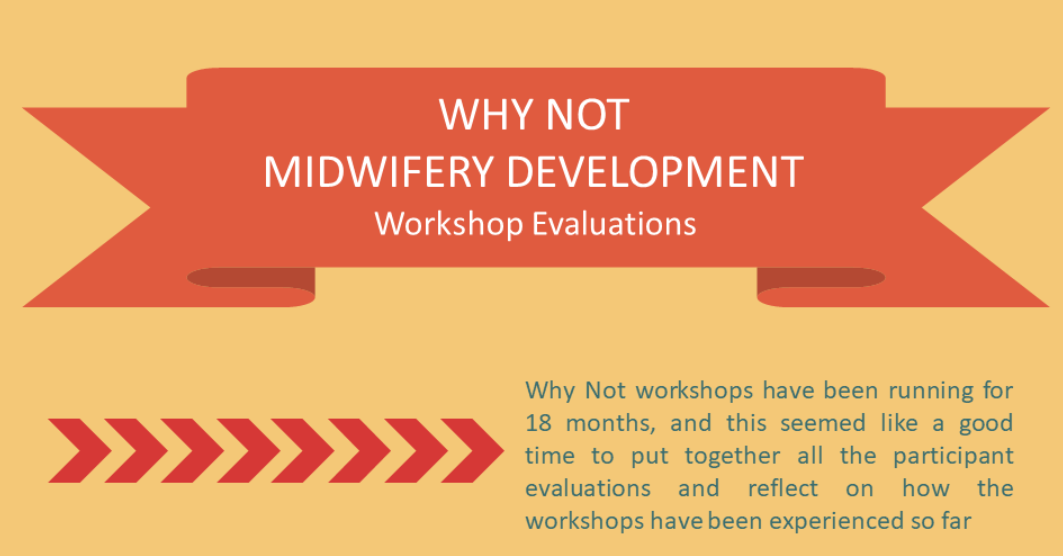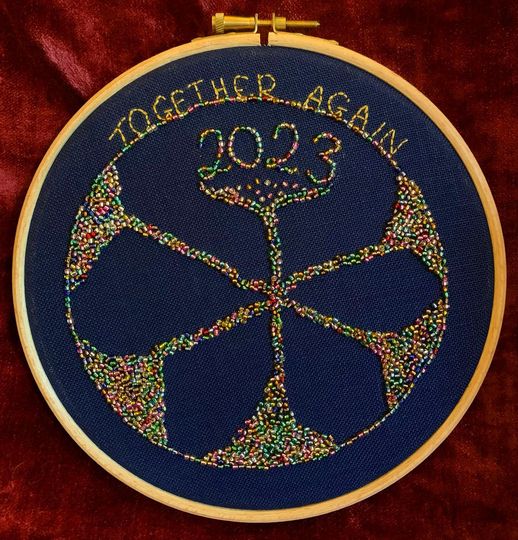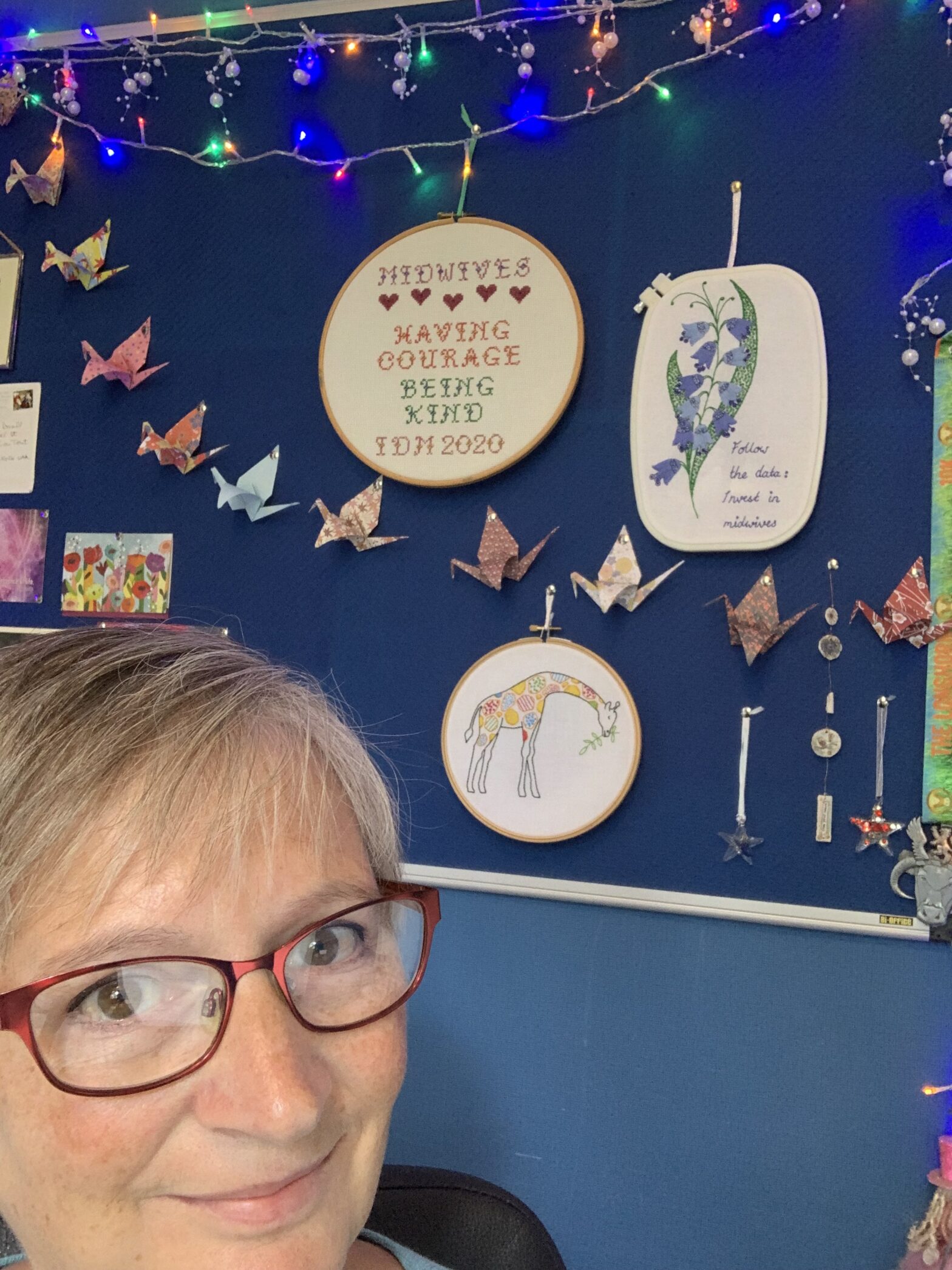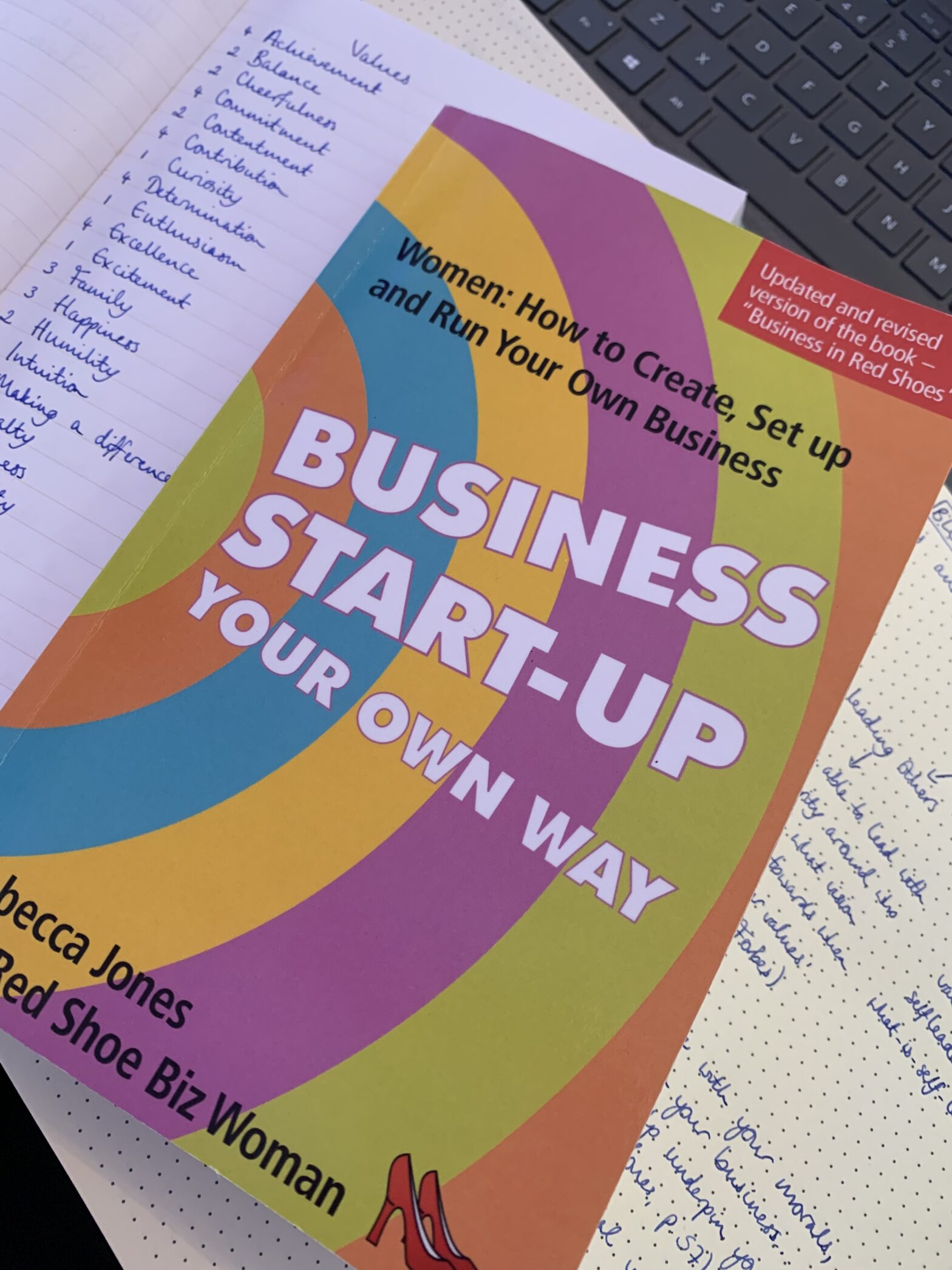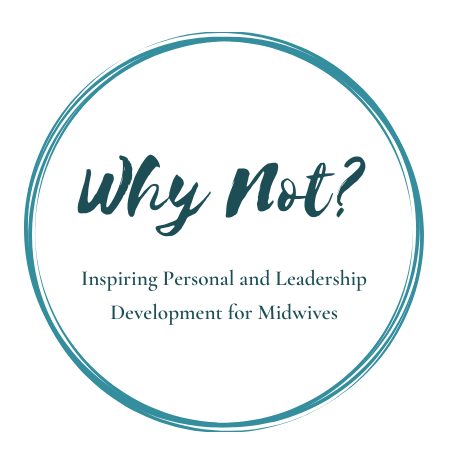According to the International Confederation of Midwives (ICM), this year’s theme for the International Day of the Midwife last week (Together Again: from evidence to reality) is ‘a nod to the upcoming 33rd ICM Triennial Congress, where our global midwifery community will come together for the first time in more than 5 years’.
Reading that, and creating my annual IDM piece of embroidery (the illustration for this post is full of sparkly beads and was created to represent the global nature of the midwifery community), I took a moment to reflect on what I’ve been doing since the last in-person ICM congress, when we met in Toronto in 2017.
Back then (and it really does feel like a lifetime ago) I was a Research Fellow in Maternity Care at the University of Nottingham. In Toronto, I presented on aspects of my doctoral research into midwifery leadership and identity, and brought a poster along as well. One of my doctoral supervisors had suggested my research into midwifery leadership and identity would create a career’s worth of work, and thinking about that now I don’t believe he was far from the truth.
Since leaving the University of Nottingham in June 2018, I’ve continued to explore the subjects of leadership and identity, both within and beyond midwifery. First, I moved into the business school at Northumbria University, where I took up a lectureship in leadership and management. I worked with undergraduate and postgraduate students from healthcare, other public sector and private sector organisations, developing my understanding of how identity narratives are created in a range of professions and contexts. While at Northumbria I also completed my PG Certificate in Coaching, and I became an Insights Discovery practitioner. I found that Insights could create a valuable framework through which individuals, teams and organisations might develop awareness of and solutions to such challenges as leadership, communication and collaborative working, all based within a positive psychology approach – celebrating strengths and at the same time addressing limitations.
In 2019, I took up the role of Professional Advisor for Leadership at the Royal College of Midwives, and brought my background in clinical midwifery, my research-based understanding of leadership, and my Insights-based understanding of identity narratives with me. Having been briefly away from the midwifery profession, I was now back in its midst, and I worked to develop workshops and programmes based on my hybrid learning and understanding.
On leaving the RCM in 2021, I established my own business – here at Why Not, I support midwives in their personal, team and leadership development. I love working with the profession so much! In the face of reports critical of midwifery and multidisciplinary leadership, my focus is always on what midwives do bring to the table, and exploring their understanding of leadership from a personal perspective – taking ownership of (and challenging) the idea that midwifery is leadership.
What also brings me joy is the range of opportunities I’ve been given to work with other professions. Within Why Not, I’ve recently expanded my workshops to include nurses and other healthcare professionals, and it’s been joyous to be able to see how Insights can impact beyond my home profession. Alongside Why Not, I’m an Associate Professor at the University of Birmingham, working on the NHS Leadership Academy’s Anderson Programme. I work with some inspiring and dedicated NHS leaders, both clinical and non-clinical, exploring how the core tenets of contemporary leadership theory (compassion, authenticity, collaboration, engagement) play out in their working lives. Beyond the NHS, I also hold an Associate Lectureship at Northumbria University, and there I work with student police officers. Again, I feel an immense sense of privilege to be supporting their development, exploring their understanding of self and others, leadership and teamworking.
What a few years I’ve had. Never having had any kind of career plan, I do feel that following opportunities and running headlong down unexpected paths has brought plenty of adventures. And so to Bali for ICM 2023, where you’ll find me presenting a poster on the subject of midwifery leadership, the theme I always come back to. I’ll be highlighting how the professional identity of midwives is inextricably linked to leadership, using learning from my Insights workshops to explore the assertion that midwifery is leadership. I’m excited to have the opportunity to be together again, after all this time: back in the room with so many inspirational midwives from around the world. Wherever I go, and whatever I do, I always come back to midwifery, and I’m grateful for it.
